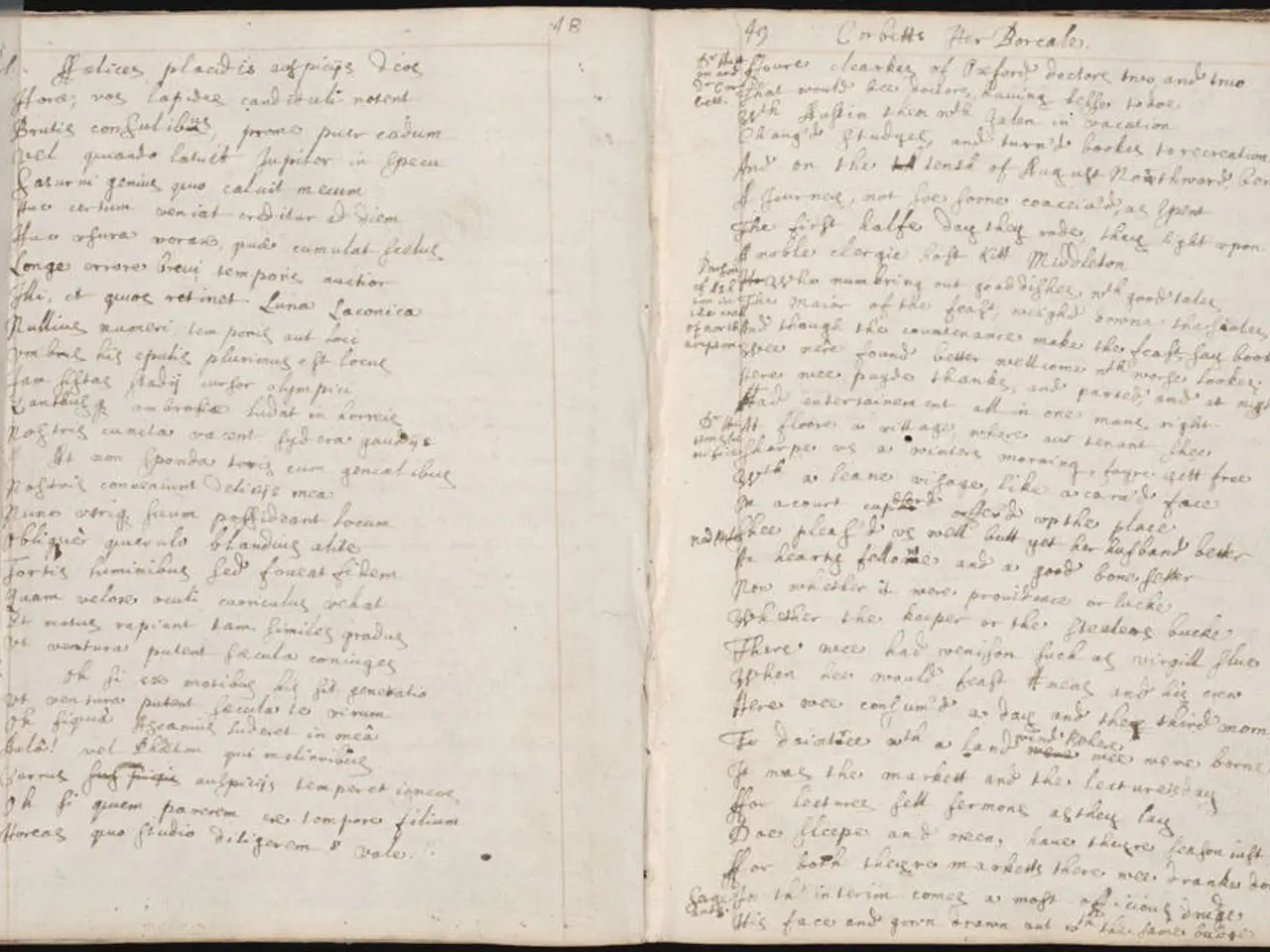Enjoyment Found in Exploration: New Study Reveals
In the heart of the academic world, a student has discovered the power of fun in research. During a meeting with their Junior Paper adviser, the student was encouraged to approach their work with an element of enjoyment.
This advice, it seems, has been some of the best academic guidance the student has received. Initially apprehensive about expanding their project, which they had begun as a first-year student, the student found themselves more excited to return to their work as they let themselves have more fun.
The student's approach to research has been unique. By cultivating personal relationships with the people they were studying, they were able to make light of the serious topic they were investigating. This approach, it appears, has not only made the research process more enjoyable but also more meaningful.
The student's work, as a result, is imbued with a sense of creativity and engagement. They found themselves writing two final papers for Dean's Date inspired by the most "fun" previous topics they had worked on. This balance of substance and enjoyment, it seems, has led to work that resonates more with audiences and contributes meaningfully to the field.
The benefits of embracing fun in academic research are manifold. Increased motivation and well-being, for instance, are closely tied to positive emotions such as happiness and enjoyment. Research shows a significant positive link between happiness and teacher effectiveness, suggesting that well-being enhances overall academic performance and productivity[1].
Enhanced creativity and communication are also a result of enjoying one's work. Adopting a mindset that values fun and creative communication can reinvigorate passion, improve how research is presented, and attract broader interest[2].
Moreover, enjoyment can foster more meaningful academic interactions and collaboration. Innovative and enjoyable methods can deepen understanding and increase the relevance of research experiences, making academic inquiry more impactful[4].
Finally, sustained focus and productivity can be achieved by combining enjoyment with strategies that improve focus, such as setting clear goals, creating conducive environments, and using active breaks[5].
In conclusion, embracing enjoyment in academic research rekindles curiosity and passion, empowers researchers to communicate creatively and effectively, and supports sustained, productive engagement, all of which contribute to more meaningful and compelling academic work.
The student, now nearing the end of their college career, finds the work they are doing to be quite meaningful. They are reminded that the stakes of research may not be as high as they think, and they know more than they think they do. With their adviser's words of encouragement echoing in their mind, they continue to approach their work with a sense of fun, ready to make their mark in the academic world.
[1] Diener, E., & Seligman, M. E. P. (2004). Beyond happiness: The science of positive psychology. American Psychologist, 59(1), 5-14.
[2] Cox, R. (2017). Academics using podcasting to make their work more engaging. The Guardian. Retrieved from https://www.theguardian.com/higher-education-network/2017/apr/20/academics-using-podcasting-to-make-their-work-more-engaging
[3] Fredrickson, B. L. (2013). Positivity: Groundbreaking research reveals how to embrace the hidden strength of positive emotions, interrupt negative patterns, and build resilience. Simon and Schuster.
[4] Koltay, J., & Koltay, J. (2016). The role of play in the development of self-regulation and self-efficacy in higher education. Journal of Play, 6(1), 124-136.
[5] Csikszentmihalyi, M. (1990). Flow: The psychology of optimal experience. Harper & Row.
- The student, now in their senior year, applies the principle of 'independent work' to their 'senior thesis', having discovered that the element of 'fun' in research is crucial for productivity and personal growth.
- The student's 'junior paper' evolved from a first-year project into an engaging, meaningful piece of work due to embracing the 'enjoyment' in academic inquiry, a process that fosters 'personal-growth' and sets the stage for 'learning' and 'self-development'.
- In the realm of 'education-and-self-development', the student's experience demonstrates that enjoyment in 'learning' not only contributes to 'personal-growth' but also leads to impactful and compelling academic work.




